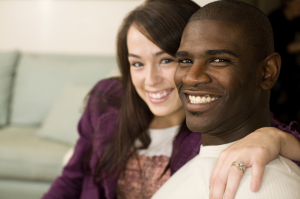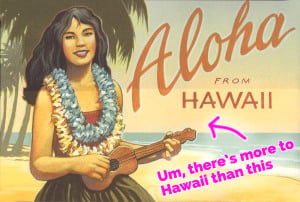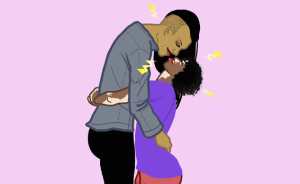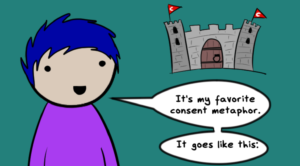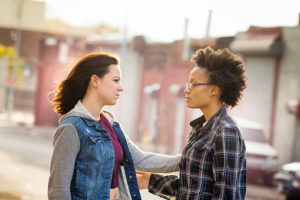I was introduced to the idea of decolonial love by writer Junot Diaz during his keynote speech at the 2012 Facing Race conference.
As soon as he said the words, I felt something slide into place — the way it always does when someone else clearly articulates something we’ve felt, but haven’t found words for ourselves.
You may be wondering, “Isn’t the age of colonialism over?” The answer is yes and no.
While the time of more developed (read: militaristic) countries invading the “blank” places on the map has come and gone, its cultural and economic equivalent is still very much alive in the form of neo-colonialism. (You can even play a game based on it here!)
And though you have not personally colonized countries or groups of people, by living US, you inherit a colonial history and mindset.
Anytime we don’t consciously address our privilege, we are in the colonial mindset. From right-wing politicians to radical activists, this ignorance to privilege strikes everyone.
In Diaz’s words, “We all have a blind spot shaped around our privilege shaped exactly like us.” (This brilliant thought would have been even better without the ableist use of “blind.” But, if nothing else, the word choice is a perfect example of what he is talking about!)
And privilege has everything to do with dominant culture — or colonial culture — because only what is aligned with that culture is privileged.
But here is where it gets complicated: Most people experience both privilege and oppression, and they do not cancel out like negatives in math. Even the most oppressed individuals can feed into the systems that disempower themselves and oppress others.
During his speech, Diaz introduced the concept of decolonial love with an “apocalyptic proclamation”: “We’re never gonna get anywhere as long as our economies of attraction continue to resemble more or less the economies of attraction of white supremacy.”
In other words, if we cannot change the thinking around who and how we love, as a society, we’ll stay stuck in the ideology of colonialism.
Making our love decolonial is a necessary step to a completely decolonial self, because if we don’t let go of our privileges and closely examine how the forces of oppression play out in our love lives, we are powering the existing injustices of the world.
And the existing forces of oppression for decolonial lovers to fight are numerous: patriarchy, heterosexism, skinny worship, classism, ableism, and what Diaz aptly calls “pigmentation politics.”
But before we get into the nitty-gritty of what decolonial love looks like, I want to be clear about what it isn’t:
Some people think it means reserving our love and respect only for people of color (POC) or queer (LGBTQIA+) folks — or especially queer folks of color. That is not the case, as only loving any group of people can fall into exotification or fethishization.
The concept of love as decolonial is not opposed to loving someone deemed desirable by society (in other words, an individual who is able-bodied, conventionally attractive, wealthy financially and socially, and/or comes from a first world country).
The issue is when we are only attracted to those kinds of people and not open to making a romantic or emotional connection with others.
So what are some ways to cultivate decolonial love?
1. Engage Your Biggest Sex Organ: The Brain
The first step to addressing the colonial mindset is awareness. Awareness is key to retraining our reflexes and stopping habits in their tracks.
When I first came to the US, I had a crush on every blond-haired, blue-eyed boy in my class. In my way of thinking, those were the characteristics of a good person.
Clearly, I had been exposed to some white supremacy in my early years in China. But when I realized what was at work that magnetized me — and many others — to whiteness, I was no longer so helplessly attracted to those traits.
While questioning what we take for granted can be hard work, it is made exponentially easier if we have practice.
So try critically engaging some aspect of society on a daily basis.
Here’s a hint: The daily articles at Everyday Feminism are a great kick-start to this kind of critical engagement.
2. Ask Yourself If You’re Attracted to Someone for Who They Are
In the media, Asian or Asian American or Pacific Islander (AAPI) men are systemically emasculated and desexualized, while Asian or AAPI women are fetishized and objectified.
Due to this presentation, an individual who “likes Asian women” may think of that as a “preference,” when in reality, it’s a learned form of prejudice that’s based on fetishizing an entire group of people.
The same can be said if you rule out an entire race as unattractive or unsuitable. In both cases, it is the stereotype that is deciding, not you.
The next time that you find yourself uncomfortable around (or inexplicably attracted to) a person due to some aspect of their identity, challenge yourself to get to the bottom of that discomfort and find out if it has to do with who they are or what you perceive them to be.
3. Practice Sexual Fulfillment as an Exchange Between Equal Partners
One of the most harmful and dehumanizing aspects of colonialism is its sexual debasement of its colonial subjects.
Indigenous people — especially women — all over the world have been objectified, assaulted, raped, or forcibly sterilized by their oppressors. Sex in colonial culture (or rape culture) is a tool of power and not an expression of mutual erotic desire.
Consent is about respect, and it should be practiced in all stages of a relationship, from flirting to life-long partnerships. Even something as seemingly small as an unwelcome catcall is a violation of that respect because no consent was asked for or given.
Power imbalances can be routine in a long-term relationship, but using them to your advantage is not.
For example: If we are less emotionally invested in our partners, we may end up with the upper hand in the relationship while the other person feels powerless.
There are ways to de-escalate the commitment level without making the other person feel disrespected or powerless. If you communicate your level of commitment clearly, and the other person is still willing to engage in a relationship based on that knowledge, then neither person is taken advantage of.
Even in equally committed relationships, it is good to check in about how empowered and respected you feel by your partner and vice versa.
4. Learn About Your (Potential) Partner’s Culture or Identity
One of the things my partner likes to say is that “if you assume, you make an ass out of [yo]u and me.”
In our times of increasing hybridity and complexity, we are doing ourselves a huge disservice if we assume what we take for granted about the world are the same for our partner.
For example, I am Chinese woman who immigrated to a very white place and grew up among mostly white people. My partner is an American white man who was raised in a neighborhood of Chicanos in a city near the Mexican border (he identifies himself as Chicano). Needless to say, our differences have led to some tricky conversations.
Emotions tend to run very high around issues of identity and culture.
Without meaning to, our differences in perspective have led us to say some things that were very hurtful to the other person. If we were not already in love and committed to each other, who knows where those conversations could have led?
That said, we have also bonded over our similarities, such as both being raised by single mothers in cultures where we were singled out.
Though we are still navigating its waters, I know our bond has also been strengthened by our differences, which leads me to my last point…
5. Try to Love What Has Been Deemed Different, Other, and Unlovable by Society
This last part can be especially important to folks who have marginalized identities.
Diaz found immense inspiration in the queer black feminists of the 1980s who loved each other when the rest of the world did not. By loving each other, they were also loving the parts of themselves that the dominant culture rejected.
Colonial culture and the conquistador mindset not only make loving another human being difficult, but it also makes loving ourselves — wholly and genuinely — an enormous challenge.
Instead of just living with what is different, which implies a certain kept distance, loving it implies intimacy. In order to love difference, we must be active in learning about it and accepting it — which can be really difficult since doing so often goes against our reflexes.
Which brings us to one of my favorite quotes by the poet Rainer Maria Rilke: “For one human being to love another; that is perhaps the most difficult of all our tasks, the ultimate, the last test and proof, the work for which all other work is but preparation.”
Working to decolonize our love and ourselves is a process, not a result. While Rilke speaks of love as a test and proof, I prefer to think of it as a life-long journey. So don’t beat yourself up if it doesn’t happen this week or even this year, just keep doing the work.
***
Many unchallenged problematic ideas are inherited from generation to generation. As a result, the reflexes of white supremacists are alive in all of us who are part of this society today, no matter who you are.
But that fact does not have to define any of us.
Engage your decolonial muscles. Build them up. Because we want it to be a fair fight between the reflexes we have inherited and the ones we have chosen for ourselves.
Finishing his thought on decolonial love, Junot Diaz echoed Rilke on the importance of this truly difficult task, “The actual standard of decolonial love—how little discussed, how little understood, yet in many ways is the great test of who we are.”
[do_widget id=”text-101″]
Anni Liu is a Contributing Writer for Everyday Feminism. She’s a writer, musician, and Chinese DREAMer. Anni is currently working with emotionally and behaviorally challenged kids at an alternative school. She lives in the Northeast Kingdom of Vermont with her partner and his son and hopes to make the acquaintance of a moose. Read her articles here.
Search our 3000+ articles!
Read our articles about:
Our online racial justice training
Used by hundreds of universities, non-profits, and businesses.
Click to learn more


